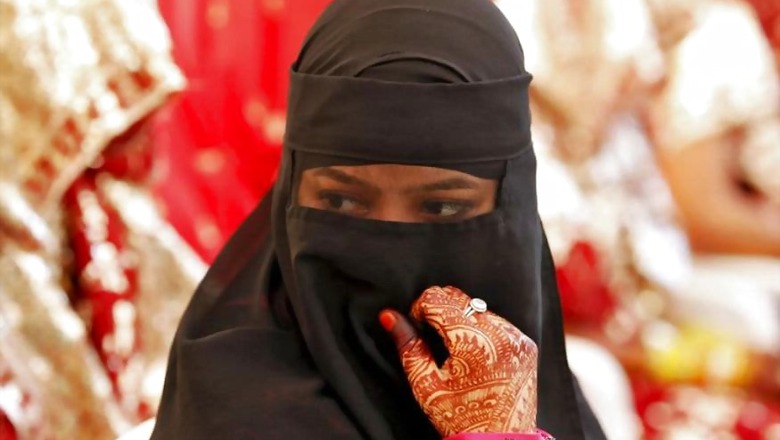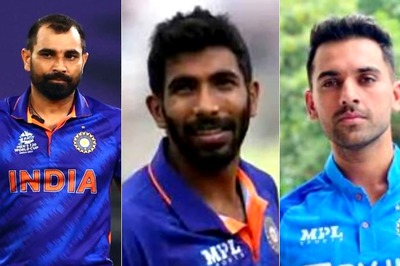
views
New Delhi: After a year of anticipation and a flurry of petitions, the Supreme Court began hearing the case on Thursday which could open the possibility of reforming the Muslim personal laws governing divorce, polygamy and re-marriage.
On the other hand, till Wednesday evening groups of Muslim women protested against the “inhuman” practice of triple talaq. As the debate on whether the practice should be abolished in totality and whether it is sanctioned by Quran or not heats up, News18 tries to find out what the practice is all about and what the Muslim holy book says.What is triple talaq?
According to the Prophet’s sayings, giving talaq to a wife in a fit of rage or anger is strictly prohibited. The Quran advises the husband to settle the differences through a mutual conversation as the first step. This step is known as the Fa’izu Hunna. If the differences continue between the husband and the wife, the parties should refrain from any conjugal acts till they settle their dispute. This step of physical separation, known as the Wahjuru Hunna, is prescribed so that the couple reunites.
Hence, the women groups who are claiming to revive this practice are only vouching for the fact that they get the maximum time to sort out their differences which is often not possible in an ‘instant talaq’.What exactly is ‘instant talaq’? How is it different from Talaq-e-Sunnah?
This instant talaq is essentially ‘Talaq-e-Biddah’. ‘Biddah’ means innovation and essentially all Muslims are advised against introducing ‘biddahs’ in their religion. This practice of talaq was first promoted by Caliph Umar, and is staunchly opposed by all the petitioners who have approached the Supreme Court for a reform in the case of triple talaq. However, the Muslim Personal Law Board has not still spoken up on the issue and claims that this can be sorted out internally.
Dr Asma Zehra, an executive member of the All India Muslim Personal Law Board, was questioned about this during a recent press conference and said, “We have left it for our Ulema (scholars) to decide what is best for us.” However, this answer is far from the truth, as something which is not mentioned in the Quran or is a part of the Sunnah can never be justified as a lawful act by a Muslim.Can a man marry his wife after pronouncing the third talaq?
Women have often described it as a barbaric practice and there are demands to abolish it.Do women have any right to divorce the husband in Islam?
Has any Islamic country taken up reforms in the practice of talaq?
Let’s begin with our neighbour Pakistan. Pakistan in 1961 had passed the ‘The Muslim Family Laws Ordinance’. According to this law, if a man wishes to divorce his wife, he will pronounce talaq and approach the Chairman of the Union Council which is appointed by the state, and give him a written notice and forward the same to his wife. Within 30 days of the receipt of the notice, the Chairman will set up an Arbitration Council which shall consist of himself, a representative of each of the spouse, and the board would try to bring reconciliation. If any individual tries to bypass this legislation then they will be punished with simple imprisonment for a year or a fine which may extend to Rs 5,000 or both.
Another example is Morocco, which has a majority population of Muslims. They have the Moroccan Family Code (Moudawana) passed in 2004. The code aims at putting both husband and wife on the equal footing, thereby prohibiting the man from pronouncing divorce unilaterally except when the procedure is being supervised by someone.

















Comments
0 comment